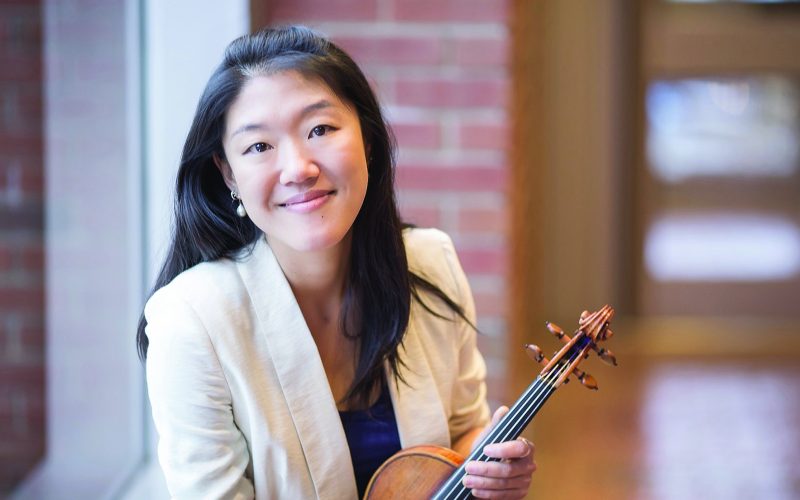Florence Price is getting a lot more attention than she did during her lifetime.
Born in 1887 to a middle-class family in Little Rock, Price attended New England Conservatory, one of the few conservatories that admitted African-Americans at the time. But it wasn’t until 1931, after she’d moved her family to Chicago and divorced her abusive husband, that Price began to write music for the orchestral world. She faced two challenges, she said in a 1943 letter to conductor Serge Koussevitzky, a story in this month’s New Yorker reports: “My dear Dr. Koussevitzky, To begin with I have two handicaps — those of sex and race. I am a woman; and I have some Negro blood in my veins.”
“One prominent conductor took up her cause — Frederick Stock, the German-born music director of the Chicago Symphony — but most others ignored her, Koussevitzky included,” writes Alex Ross in The New Yorker.
And that might have been all we came to know about Price — until a collection of her manuscripts, books and personal papers was discovered in a derelict home in St. Anne, Ill., in 2009 and donated to Special Collections at the University of Arkansas Libraries. Thanks to efforts in the recent past by the late Rae Linda Brown, the New Black Music Repertory Ensemble, the Women’s Philharmonic; this month, by Er-Gene Kahng and the Arkansas Philharmonic Orchestra; and later this spring, by the Fort Smith Symphony, Price’s music is everywhere.
Kahng, who recently recorded Price’s Violin Concertos Nos. 1 and 2 on the Albany label, took time to answer these questions for What’s Up!
Q. Tell us, please, about your musical background and how you ended up in Fayetteville?
A. I started violin at the age of 5 in Milwaukee, Wis. I continued my musical training in Seoul, Korea, and Los Angeles, where I grew up. I studied music at UCLA, Yale and Northwestern [and] I relocated to Fayetteville when I was offered (and I accepted) the position of violin professor with the University of Arkansas. I have been here since 2007.
Q. How many orchestras — and where — do you regularly perform with?
A. I am currently concertmaster of Arkansas Philharmonic Orchestra and Fort Smith Symphony Orchestra. I am the former concertmaster of North Mississippi Orchestra and sub with Tulsa Symphony and Arkansas Symphony.
Q. How did you become familiar with the music of Florence Price?
A. UA’s music department hosted a Florence Price Symposium in 2015; I became familiar with some of her string quartets then. Our Special Collections held the manuscripts to her violin concertos, and I had been working on this particular project (to have her concertos recorded) since 2016.
Q. What will you be playing with APO and conductor Steven Byess?
A. Florence Price’s Violin Concerto No. 2 (1952), written about a year before her death. There is 13-year difference from the time of the first concerto to the second; there’s evidence of style and technique maturation.
Q. What does the audience need to know to understand/appreciate/fully enjoy this concert?
A. I truly believe the music will speak for itself; however, I also believe that knowledge of Florence Price’s life story and Arkansas history at the time of her childhood will aid in providing a valuable context for her music and an appreciation of her personal persistence, strength and courage in the face of adversity.
__
FAQ
Arkansas Philharmonic:
The Music of Florence Price
WHEN — 7:30 p.m. Feb. 17
WHERE — Arend Arts Center in Bentonville
COST — $5-$35
INFO — 841-4644
BONUS — The performance will also include musical selections from the University of Arkansas Inspirational Chorale, directed by Jeffrey Murdock.
__
FYI
Kahng will also perform Price’s music at the February Trillium Salon Series concert at Crystal Bridges Museum in Bentonville at 7 p.m. Feb. 21. The series redefines the classical performance experience by inviting connection and interaction between performer and audience. Free; register at 657-2335 or crystalbridges.org.
BECCA MARTIN-BROWN
bmartin@nwadg.com



